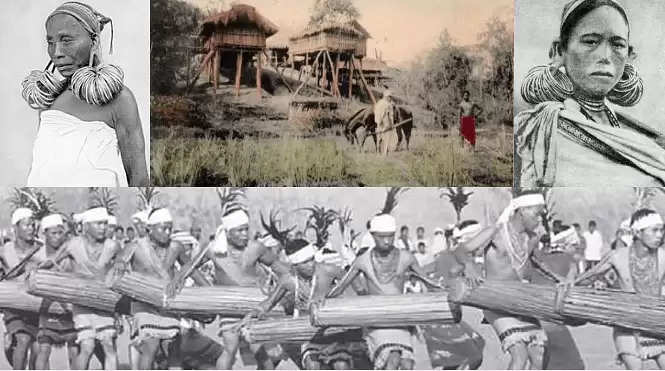5 facts you must know about the Garo Tribe of Meghalaya

TNT Desk | August 05, 2018
#1. The Garos are a Tibeto-Burman ethnic group in Meghalaya also known as the A·chik Mande (literally hill people) or simply A·chik or Mande. A large part of the Garo community follow Christianity, with some rural pockets following traditional animist religion known as Songsarek and its practices.
#2. The Garo language belongs to the Bodo–Garo languages branch of the Tibeto-Burman language family. It is believed that the written language was lost in its transit to the present Garo Hills. Garo language/script was written on the skins of cows and while on the way their ancestors faced famines so they cooked them, thus written language/script was lost. A·beng or Am·beng, Matabeng, Atong, Me·gam, Matchi, Dual [Matchi-Dual], Ruga, Chibok, Chisak, Gara, Gan·ching [Gara-Gan·ching], A·we etc are few among the dialects of Garo people.
#3. According to one oral tradition, the Garos first immigrated to Garo Hills from Tibet(referred to as Tibotgre) around 400 BC under the leadership of Jappa Jalimpa, Sukpa and Bongepa crossing the Brahmaputra River and tentatively settling in the river valley.
#4. The earliest written records about the Garo dates from around 1800. They were looked upon as bloodthirsty savages, who inhabited a tract of hills covered with almost impenetrable jungle, the climate of which was considered so deadly as to make it impossible for a white man to live there. The Garo had the reputation of being fierce headhunters, the social status of a man being decided by the number of heads he owned.
#5. In December 1872, the British sent battalions to Garo Hills to establish their control in the region. The attack was conducted from three sides – south, east, and west. The Garo warriors (matgriks) confronted them at Rongrenggre with their spears, swords, and shields. The battle that ensued was heavily unmatched, as the Garos did not have guns or mortars like the British Army.
#6. Togan Nengminja, a young matgrik, was in command of the valiant Garo warriors. He fell fighting with unmatched heroism and courage in December 1872. Later, a Garo patriot and statesman Sonaram R Sangma fought against the British and tried to unify the contiguous Garo inhabited areas.
You can also contribute articles and opinions for our website by mailing them to us at web@thenortheasttoday.com and shweta@thenortheasttoday.com
We welcome your comments at web@thenortheasttoday.com

















